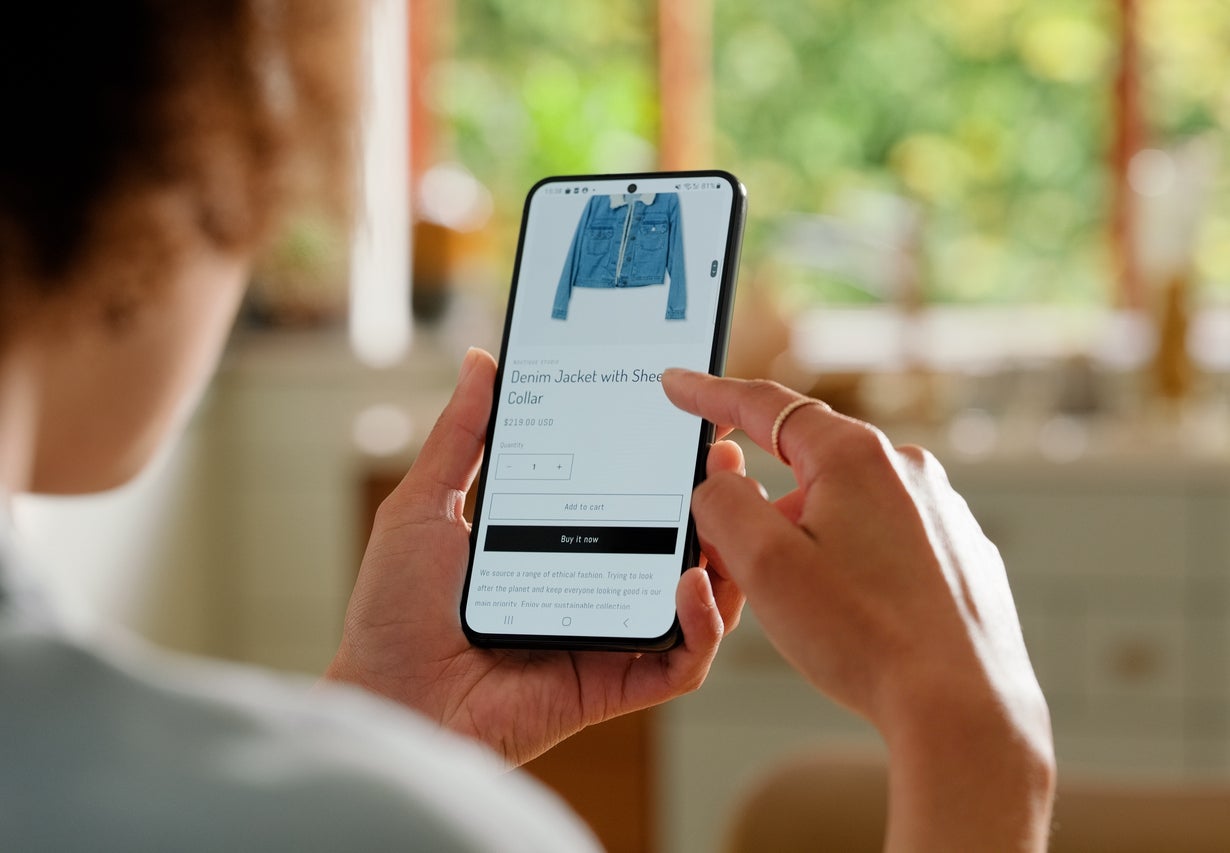Your support helps us tell the story.
In my reporting on women's reproductive rights, I have witnessed the critical role that independent journalism plays in protecting freedoms and informing the public.
Your support allows us to keep these vital issues under the spotlight. Without your help, we would not be able to fight for truth and justice.
Every contribution ensures that we can continue reporting on the stories that impact lives.
Kelly Rissman
US News Reporter
TOAnother weekend, another wave of outrage on social media. This time, the anger was reserved for online fashion brand Asos.
“Anyone else get an email from Asos? Maybe if they fixed the shitty sizing, cheap materials, and the fact that they never ship anything out the next day, we wouldn't have to return it,” one tweet read.
“Wow! I no longer use Asos and I hope everyone who received this email does the same. Maybe if they made clothes that actually fit correctly in the size they are supposed to or looked like they do on the website, I wouldn’t return so many items,” said another.
“Asos is disgusting,” said a third.
The reaction came in response to an email that had been sent to a select group of customers, announcing that the retailer would be changing its returns policy.
“We wanted to let you know about some updates we are making to our Fair Use Policy that will impact your future orders with Asos,” reads the message, which has now been widely shared online. “We know how much our customers love free returns and we will continue to offer them to all UK customers.
“However, as we are part of a small group of customers with a frequently high return rate, you will now only get free returns when you keep £40 or more of your order. If you keep less than £40 of your order, we will deduct £3.95 from your refund. The vast majority of customers will continue to receive free returns on all orders.”

Some of the brand's Premier customers (those who pay an annual subscription fee to get free shipping options) received a similar email explaining that they would need to keep a minimum of £15 worth of items to qualify for free returns.
You might have thought, from the venom that was unleashed, that a monumental miscarriage of justice had occurred. You might have thought, from the way people were talking, that they had no choice in the matter – that Asos was the brand that the state forced all clothing in the UK to be purchased from. Affected shoppers complained of inappropriate sizing, poor quality garments that did not look like what had been advertised on the website, and cheap materials used. these factors, they said, that made all those returns necessary.
Reading this catalogue of righteous indignation, one could easily get carried away by it all and join the mob howling and raging at “The Man” for penalizing the beleaguered and helpless consumer. But think about it for more than a few seconds and the argument collapses like an undercooked soufflé.
Firstly, Asos is a company making a business decision. If the company has chosen to go ahead with a move that is so unpopular in some quarters that it will inevitably drive away customers, we can only assume that Asos calculated that it would be better off financially. without Secondly, no one is forcing these people to shop at Asos. According to their own statements, those most angry about the impending policy change don’t even seem to like shopping there. If the size isn’t right or the condition is questionable, as claimed, has it ever occurred to them that they can just… take their money somewhere else? Maybe somewhere that prioritizes quality of production over huge, endless quantity? That’s, at least, the beauty of capitalism. We’ve never had more choice. If we don’t like a company’s products or policies, we can vote with our wallets. We don't have to buy from them.
We are participating in a phantom version of online shopping that is completely separate from the physical world.
But the angry reaction is perhaps indicative of a larger problem within the landscape of overconsumption in 2024. Over the past two decades, our behavior as consumers has changed beyond all recognition thanks to technology. Instead of the old way of walking into a physical store, touching the garments to get a feel for the fabric, trying them on to see how they fit, going back with a friend to see how they fit, they thinking; weighing up whether you can afford something or not before taking the plunge; coming home with a prized item that will be your favourite “novelty” item, which you will wear with pride for months – some monstrous facsimile has grown in its place.
Now, we’re embarking on a phantom version of online shopping that’s completely detached from the physical world. Items don’t feel real in that digital space, and neither does the money you pay for them. “Clothes” are added to “baskets” and ordered within seconds, bought on impulse to provide a brief dopamine rush, and just as quickly forgotten about until they arrive. Services like Klarna, where you can buy on credit and pay in instalments, make it even easier to make an impulse purchase when you can’t afford to.
Products are not purchased intentionally or thoughtfully, but spontaneously; there is a sense of disposability throughout the process, from start to finish, encapsulated by the very concept of fast fashion. Cheap, flimsy items ordered in bulk and returned en masse when they inevitably disappoint may be destined for landfill or destruction the moment they are returned, as retailers move on to the next trend, and the next, and the next. Unlike the designated seasons of yesteryear, which dictated when stores would introduce new collections, there is now a constant, never-ending carousel of new styles online to ensure we never stop shopping.
According to a 2024 PwC report, global clothing sales have more than doubled over the past 20 years. The UK is Europe’s biggest offender: the average British citizen buys an average of 26.7kg of clothing a year – almost double that of our nearest competitor, Germany. Meanwhile, rapid fast fashion production means that up to 40% of clothing made is never sold or worn – of the 100 billion garments produced globally each year, 92 million tonnes end up in landfill.

Asos is already struggling in this highly competitive market, posting an 18% drop in sales in March this year. It’s not just up against brick-and-mortar retailers with ever-improving e-commerce offerings, but also the proliferation of online-only, dirt-cheap competitors like Boohoo, Shein and Temu, whose rock-bottom prices are impossible to match. Yet the brand is pulling out all the stops, shifting from trying to position itself as the “sustainable” fast fashion option (partnering with the Centre for Sustainable Fashion to publish the Circular Design Guide in 2021 and launching a “circular design collection” in 2022) to looking at 2024 as a “transition year.” The new approach is focused on speeding up processes, launching new collections and getting rid of excess stock build-up – none of which seems even slightly conducive to sustainability.
Then there’s the other, slightly more hopeful side of competition: the rapidly rising used clothing market, with sites like Vinted and Depop presented as a more sustainable way for people to get their fashion fix. While far from perfect, these platforms encourage a more considered and patient approach, as well as allowing garments to be reused rather than thrown away – there’s no next-day delivery and no return option unless it’s damaged or not as pictured on the app. A level of commitment is required before you click “buy now”, but if something isn’t quite right, it can always be resold and put back into circulation through the same means.
It may be a controversial opinion, but I'm not sure that endless returns, which encourage a culture of mindless shopping and bulk buying, should be free. Maybe then we'd think a little more before ordering another batch of clothes we barely want, let alone need; maybe then we'd think seriously before supporting an industry that's filling an already overpopulated world with ever more stuff.












